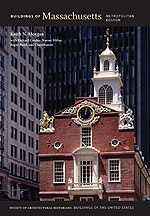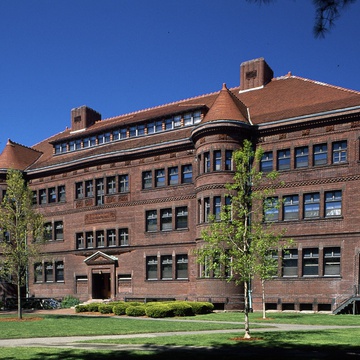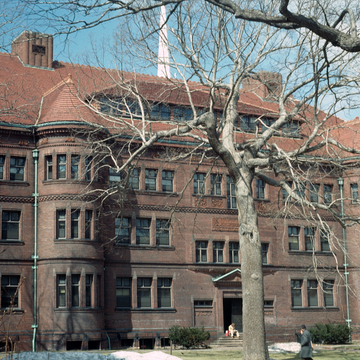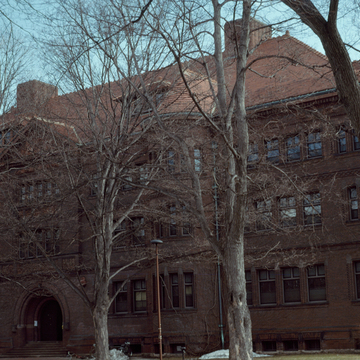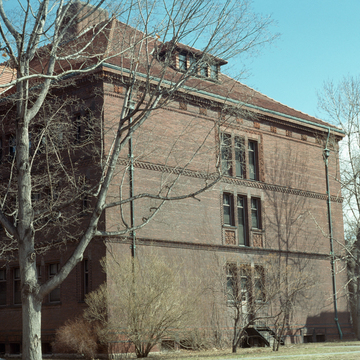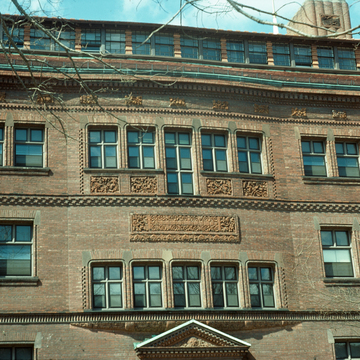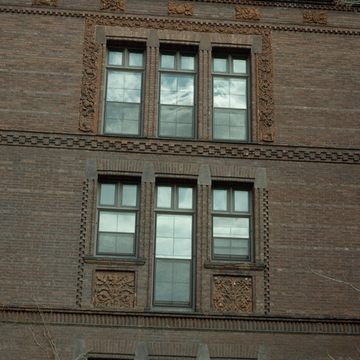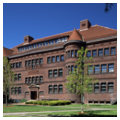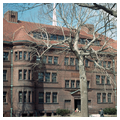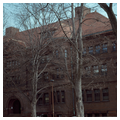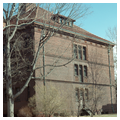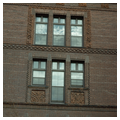Sever Hall became the keystone in the development of the eastern side of the Yard, fronting on what was to become Tercentenary Quadrangle and establishing Sever Quadrangle on its other side. The new classroom building also introduced elements of the Georgian Revival to the Yard—red brick, the pedimented central bay of its west facade, and the classical entranceway of its east facade all associate it with Harvard's eighteenth-century buildings. Yet Richardson used his more characteristic elements—rounded arches, horizontal window bands, and cylindrical towers—as well. Unlike Matthews and Weld halls (see HY7), built during the early 1870s, with vertical massing and picturesque rooflines, Sever Hall is a quiet, horizontal structure, closer in sensibility to the Georgian buildings, relatively restrained, but not austere. Richardson embellished it lavishly with molded and carved brickwork, the carving executed by John Evans, who would become a leading figure in the Society of Arts and Crafts.
You are here
Sever Hall
If SAH Archipedia has been useful to you, please consider supporting it.
SAH Archipedia tells the story of the United States through its buildings, landscapes, and cities. This freely available resource empowers the public with authoritative knowledge that deepens their understanding and appreciation of the built environment. But the Society of Architectural Historians, which created SAH Archipedia with University of Virginia Press, needs your support to maintain the high-caliber research, writing, photography, cartography, editing, design, and programming that make SAH Archipedia a trusted online resource available to all who value the history of place, heritage tourism, and learning.

